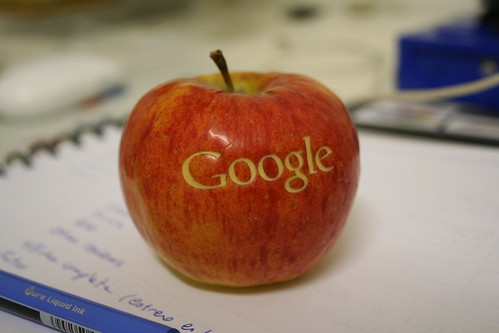Was the service really destined to end face to face meetings, though?

Image courtesy of missha, Flickr
Right or Wrong?
To be fair, Hangouts does get a lot right. It’s extremely accessible, requiring only a browser for most individuals. As a web application, it also removes many networking concerns of users operating behind corporate intranets and firewalls. It has an elegant interface, is simple to access and because it is tied to Google+, it also provides a convenient way for users to access their contacts. It is a useful tool with a lot of positive aspects.
However, Google+ Hangouts’ accessibility may also be its greatest weakness. Hangouts is intrinsically linked to Google+, requiring a Google+ account to use it. This may not seem like a huge issue, considering Skype also requires a user account. If a user does not already have a Google account though, the signup process for Google+ is substantially more involved than it is for Skype. Moreover, Hangouts is far from full-featured. For example, there are still no moderation features, which is frustrating for many Hangouts hosts who feel such a feature should have been present upon release.
Past Mistakes
Even if Google+ could overcome these limitations, consider that Hangouts is far from the first attempt at a videoconferencing solution. Skype has featured videoconferencing since the early 2000s. In spite of that, how meetings are conducted has not significantly changed since then. For example, when was the last time you heard of an employer conducting a job interview over Skype? As another illustration, the capability to telecommute in order to work has been available for years, yet employers still prefer to hire local candidates to work on-site.
There is a persistent aversion to using videoconferencing in business situations. It is true that the low quality of early Skype videoconferences were inappropriate for business applications. However, even with the higher quality of modern videoconferencing, virtual meetings have still not gained much traction. Hangouts is used by students for study groups and by public figures to reach out to their fans. Yet, businesses do not appear to make much use of the service.
The problem is that there will always be inefficiencies with videoconferencing. Whether it is a major issue, such as a disconnection, or a minor issue, such as having to adjust the microphone volume, people prefer to work in the least disruptive and most efficient manner possible. Many times, that means a face-to-face meeting. So while it’s reasonable to expect videoconferencing services to grow more popular as time goes on; it’s probably a good idea to keep practicing your handshake, because you’ll likely still need to use it more days than not.
This article was written on behalf of De Vere Venues a London meeting rooms and conference venue provider.
Thanks for the guest post MikeyD. But to be honest with you I think Google is just getting primed up with Hangouts. You do have a point when you've said that
ReplyDelete"there are still no moderation features"
I once attended a hangout when a person who looked like a Mexican warlord, complete mustache and beard minus the sombrero was making everybody feel weird.
With that said, I think the face to face encounters you mentioned won't be totally replaced. Hangout were meant to be supplementary forms of communication.
Personally, I look forward to having hangouts once Google's Project Glass officially becomes available in the retail market.